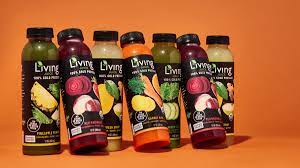Electrifying Electrolytes

Electrolytes play a crucial role in maintaining the balance of bodily fluids and ensuring the proper functioning of various physiological processes. These electrically charged minerals are found in our body's fluids, tissues, and cells, and are vital for sustaining life. In this article, we will delve into the significance of electrolytes, their functions within the human body, and provide examples of foods and drinks rich in these essential minerals.
What Are Electrolytes?
Electrolytes are minerals that carry an electric charge when dissolved in bodily fluids such as blood, urine, and sweat. The most common electrolytes in our body include sodium, potassium, calcium, magnesium, chloride, and phosphate. Each of these electrolytes serves distinct functions, contributing to overall health and well-being.
Importance of Electrolytes
Maintaining proper electrolyte balance is vital for various physiological processes, including nerve and muscle function, maintaining hydration levels, regulating blood pH, and supporting cellular metabolism. These minerals help transmit electrical impulses, facilitate muscle contractions, and regulate fluid balance within and between cells.
Functions of Electrolytes in the Human Body:
-
Sodium: Sodium plays a crucial role in maintaining fluid balance, nerve function, and muscle contractions. It also helps regulate blood pressure. Foods rich in sodium include table salt, soy sauce, processed meats, and some canned or packaged foods.
-
Potassium: Potassium is essential for maintaining proper heart and muscle function, regulating blood pressure, and balancing fluids. Excellent sources of potassium include bananas, spinach, avocados, sweet potatoes, and yogurt.
-
Calcium: Besides its role in maintaining strong bones and teeth, calcium supports muscle function, nerve signaling, blood clotting, and hormone secretion. Dairy products, leafy greens, tofu, and fortified foods are good sources of calcium.
-
Magnesium: Magnesium is involved in more than 300 enzymatic reactions in the body. It contributes to muscle and nerve function, energy production, and maintaining a healthy immune system. Magnesium-rich foods include almonds, spinach, legumes, whole grains, and dark chocolate.
-
Chloride: Chloride, often found in table salt, helps maintain fluid balance, aids in digestion, and supports proper nerve function.
-
Phosphate: Phosphate is crucial for bone health, energy production, and maintaining the body's pH balance. It is found in a variety of foods, including meat, dairy products, legumes, and whole grains.

How to Get Your Fix
To maintain adequate electrolyte levels, it is important to consume a balanced diet with foods rich in electrolytes. Here are some examples:
-
Sports drinks: Many sports drinks contain electrolytes like sodium and potassium, making them ideal for replenishing electrolytes lost through sweat during intense physical activity.
-
Fruits: Bananas, oranges, watermelon, and kiwi are excellent sources of potassium and other electrolytes.
-
Leafy greens: Spinach, kale, and Swiss chard contain various electrolytes, including calcium and magnesium.
-
Nuts and seeds: Almonds, cashews, and sunflower seeds are good sources of magnesium and other electrolytes.
-
Dairy products: Milk, yogurt, and cheese are rich in calcium and contain other electrolytes.
Electrolytes are essential for maintaining proper bodily functions and overall health. They help regulate fluid balance, support nerve and muscle function, and ensure optimal cellular metabolism. By consuming a balanced diet with electrolyte-rich foods and staying adequately hydrated, we can help maintain the delicate balance of electrolytes in our bodies. So, let's embrace the power of electrolytes and prioritize their inclusion in our daily nutritional intake for a healthier and more vibrant




